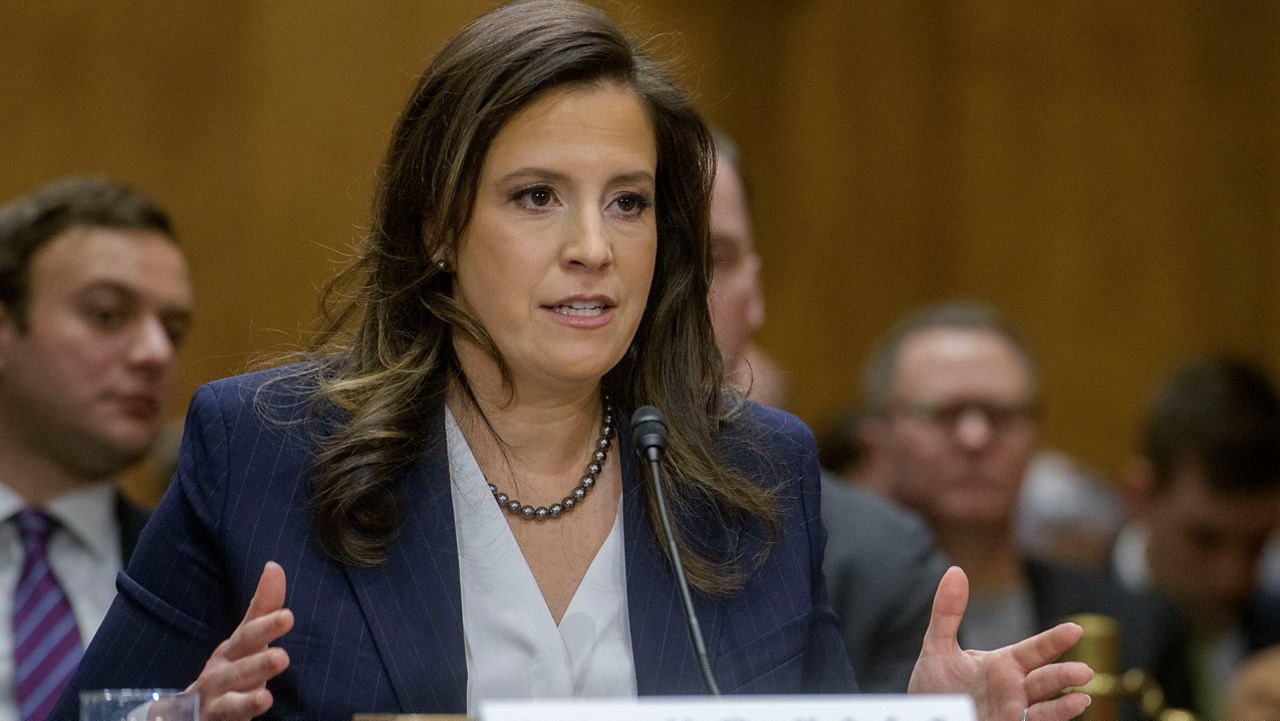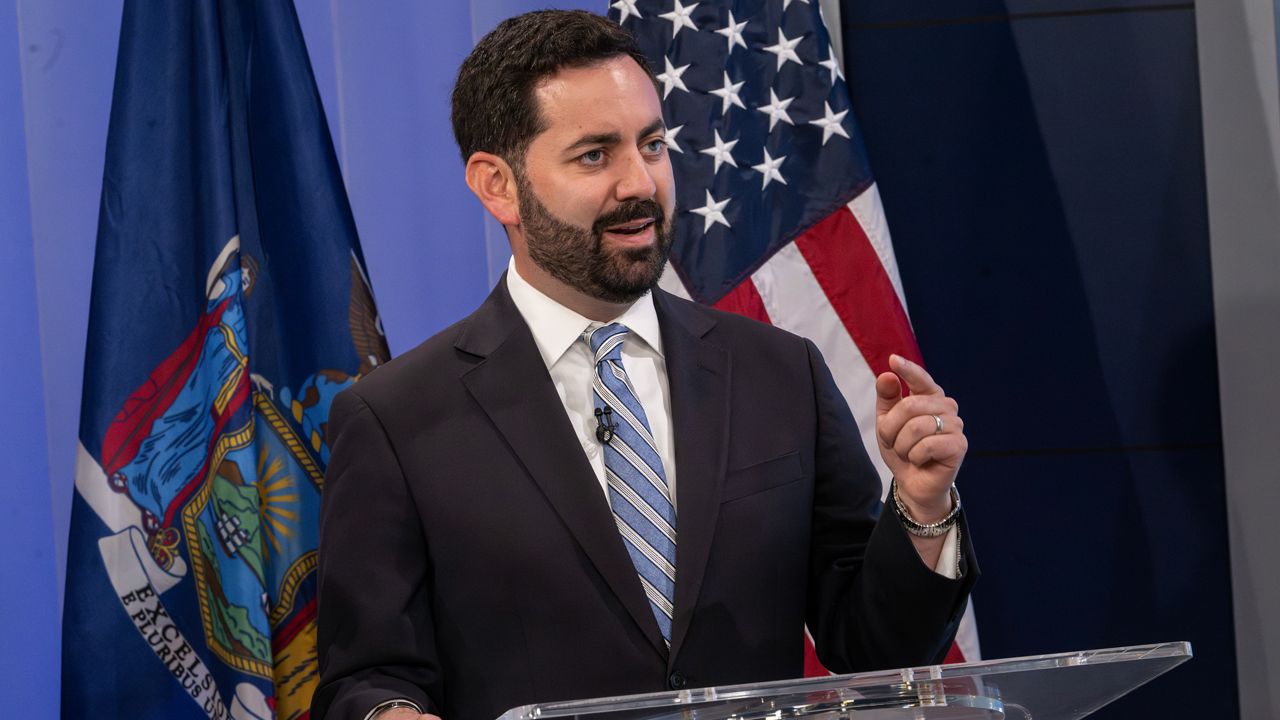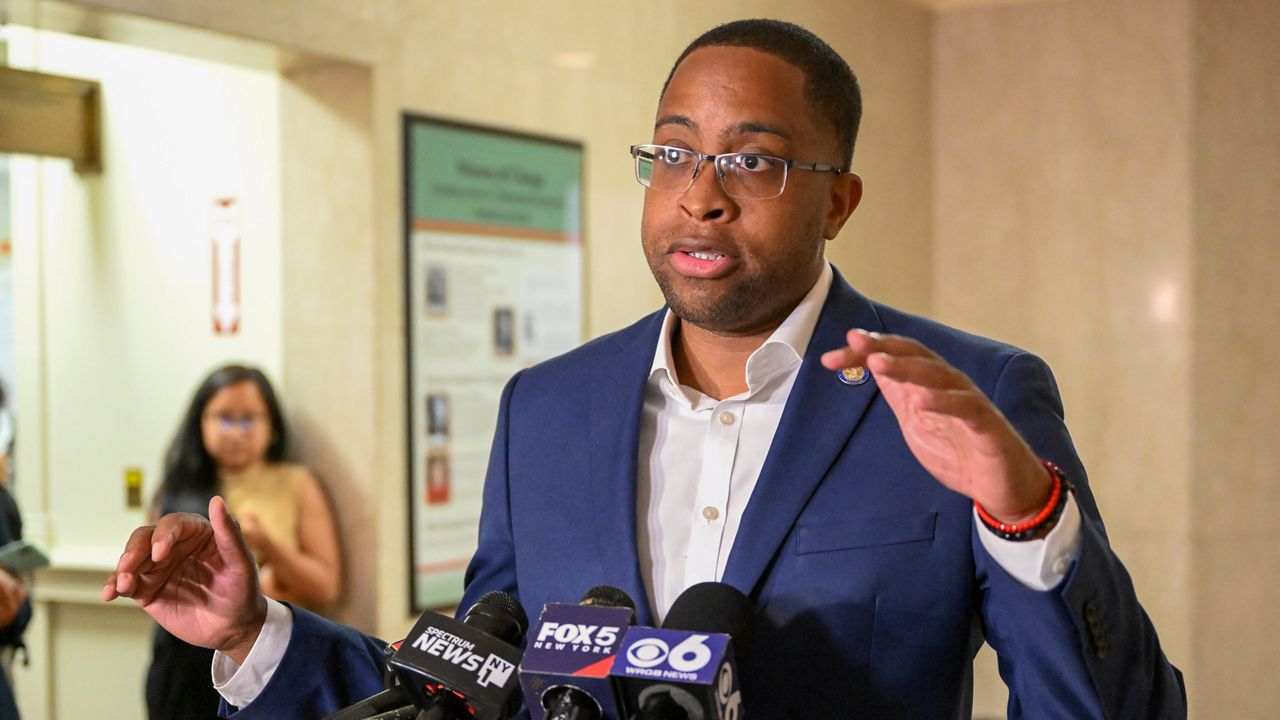A few weeks after the one-year lookback window of the New York Adult Survivors Act closed, lawmakers, advocates and survivors of sexual abuse Tuesday introduced a legislative package of bills aimed at helping survivors report cases or launch civil suits against their abusers.
Rallying in New York City ahead of the next legislative session scheduled to kick off next month, advocates for survivors of sexual abuse laid out their priorities for the term. Advocates are calling for passage of a legislative package that includes eliminating the civil statute of limitations for child sex abuse cases and extending the statue for cases of sex trafficking.
"We know that safety looks different for every survivor, healing looks different for every survivor and justice looks different for every survivor, but for far too long, New York's laws have restricted survivors' opportunities to seek relief in our civil courts," Safe Horizon CEO Liz Roberts said in a statement.
Included in both the Child Victims Act and the Adult Survivors Act was a one-year-long lookback window for survivors of sexual abuse to launch civil claims against their abusers and potentially the institutions connected to the abuse. One of the bills that advocates are looking to pass in the next session would make that lookback window permanent for child sex abuse claims by eliminating the statute of limitations and creating a uniform standard for survivors.
"The New York Child Victims Act provided me with an opportunity to hold accountable those responsible for the abuse I suffered as a teen," said Bridie Farrell, survivor and founder of America Loves Kids.
Farrell, a former speed skater, ran a brief congressional campaign against U.S. Rep. Elise Stefanik, suspending her candidacy in early 2022.
"We need more policy remedies for survivors akin to the Child Victims Act, not fewer," Farrell continued. "That is why I am supporting this package of legislation. I'm confident lawmakers will pass these bills this session and continue to build on their outstanding records of enacting pro-survivor legislation."
The state Assembly sponsor of the bill, Manhattan Democrat Linda Rosenthal, cited the number of cases filed under the Child Victims and Adult Survivors to showcase the need for the policies.
“The fact that these laws led to the filing of more than 14,000 cases shows how pervasive sexual assault is in our society and the work we still have to protect survivors,” she said, adding more needs to be done "to ensure all survivors are heard and protected."
Advocates will also push for legislation to extend “rape shield” laws to civil cases. The "rape shield” bars lawyers from using a victim’s sexual conduct, dress or predisposition as evidence in a criminal trial. However, under current law, that protection does not apply to civil cases.
Senate sponsor Sen. Brad Hoylman-Sigal argues the legislation would protect survivors from inappropriate cross examination.
Over half of women and nearly one-third of men experience sexual violence in their lifetime, said Hoylman-Sigal, a Manhattan Democrat.
"Survivor justice is an ongoing fight," he said.
He also sponsors a bill to extend the statutes of limitation related to sex trafficking and related crimes, and create a similar one-year lookback window for survivors to file civil lawsuits. Sex trafficking survivors were not covered under the Adult Survivors or Child Victims acts.
"With this entire package of bills, New York will be a safer state, and grant survivors the chance at justice in court," Hoylman-Sigal said.
The Fair Access to Justice Act is the final bill in the legislative package, which would start the statute of limitation for sexual abuse that happens while a person is in prison, jail, a public mental health facility or in other state custody after a person is released. It would also lift requirements for survivors to recount the exact time, location and date of the violation — an often impossible standard for people in state custody — and allow a person to make their case "to the best of their knowledge and belief."
Current law mandates they file a complaint within 90 days of the incident.
"Individuals should have access to justice whether or not they are in custody," Senate Crime Victims, Crime & Correction committee chair Julia Salazar said in a statement. "...Statutes of limitations can expire while an individual is incarcerated or shortly after their release. Second, an individual must provide exceedingly precise details to substantiate their legal claims. Given the challenges particular to individuals behind bars, these hurdles too often are prohibitive."
The first day of the next legislative session is Jan. 3.








_DNT_911_Air_Quality_Investigation_CLEAN_130267847_2447)
